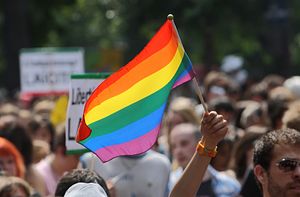Last Christmas, Vice President Jusuf Kalla declared that Indonesia was the most tolerant Muslim-majority country in the world; members of the LGBT community would doubtless beg to differ.
Over the last few months Indonesia has experienced a dramatic increase in discrimination and hate speech toward lesbian, gay, bisexual and transgender (LGBT) people, the severity of which has come as a shock to many. Although the LGBT community has had to struggle for a place in this predominantly Muslim nation, rarely has the national conversation been so dominated by powerful voices calling for censorship and inciting violence.
The origins of the dramatic shift in rhetoric can be traced to January 2016 when the minister for technology, research and higher education called for a ban on LGBT people on university campuses, claiming they threaten “Indonesian morals and norms.” The minister’s comments came in response to an organization handing out leaflets at the University of Indonesia offering counselling for LGBT students, which he interpreted as attempting to proselytize their sexuality.
Since then there have been a series of anti-LGBT statements from public figures ranging from laughable to alarming. Censorship has also increased. On February 11 a spokesman from the Ministry of Information requested that social messaging app LINE remove any emojis or images “that smack of LGBT” — a request to which LINE acquiesced.
The Indonesian Broadcasting Commission has also now banned television and radio programs that depict LGBT people living “normal” lives, as well as banning men who appear feminine from appearing on television. The same vice president who praised Indonesia’s tolerance recently told the United Nations Development Program (UNDP) to cut funding to LGBT-rights education groups, saying they violate Indonesia’s “social values.”
The censorship of LGBT voices is a serious concern in any community; however, even more worrying is the rise in hate speech and calls that incite violence that has been a feature of the year so far. In February, Defense Minister Ryamizard Ryacudu described LGBT groups as attempting to “brainwash” through a type of “proxy war.” He even went so far as to say LGBT people are more dangerous than a nuclear war, which is not only offensive, but indicates an alarming set of priorities for a defense minister.
On February 25, former Communications Minister Tifatul Sembiring tweeted that homosexuals should be killed. He has over one million followers.
The sudden increase in public statements of hatred toward LGBT people in Indonesia has reportedly led to the community establishing hotlines and safe-houses. Encouragingly, a school specifically for transgender students in Yogyakarta that was forced to close recently has vowed to reopen and continue their work at a new location.
Many are surprised by the speed and intensity of the shift against LGBT people in Indonesia over the last few months. While LGBT rights have often been a taboo topic in Indonesia, the sudden onslaught in anti-LGBT rhetoric is a serious cause for concern.
Human rights groups have been firm in calling for an end to censorship and hate speech against LGBT people, but so far President Joko “Jokowi” Widodo has remained silent on the growing trend in public declarations of hate against LGBT people. After being elected on a human rights-based platform and with the support of a large part of the LGBT community, Jokowi’s silence is disappointing.
Caitlin McCaffrie is a human rights consultant with a focus on the Indo-Pacific region, currently based in Phnom Penh.
This article was first published on the Young Australians in International Affairs blog. It is reprinted with kind permission.

































